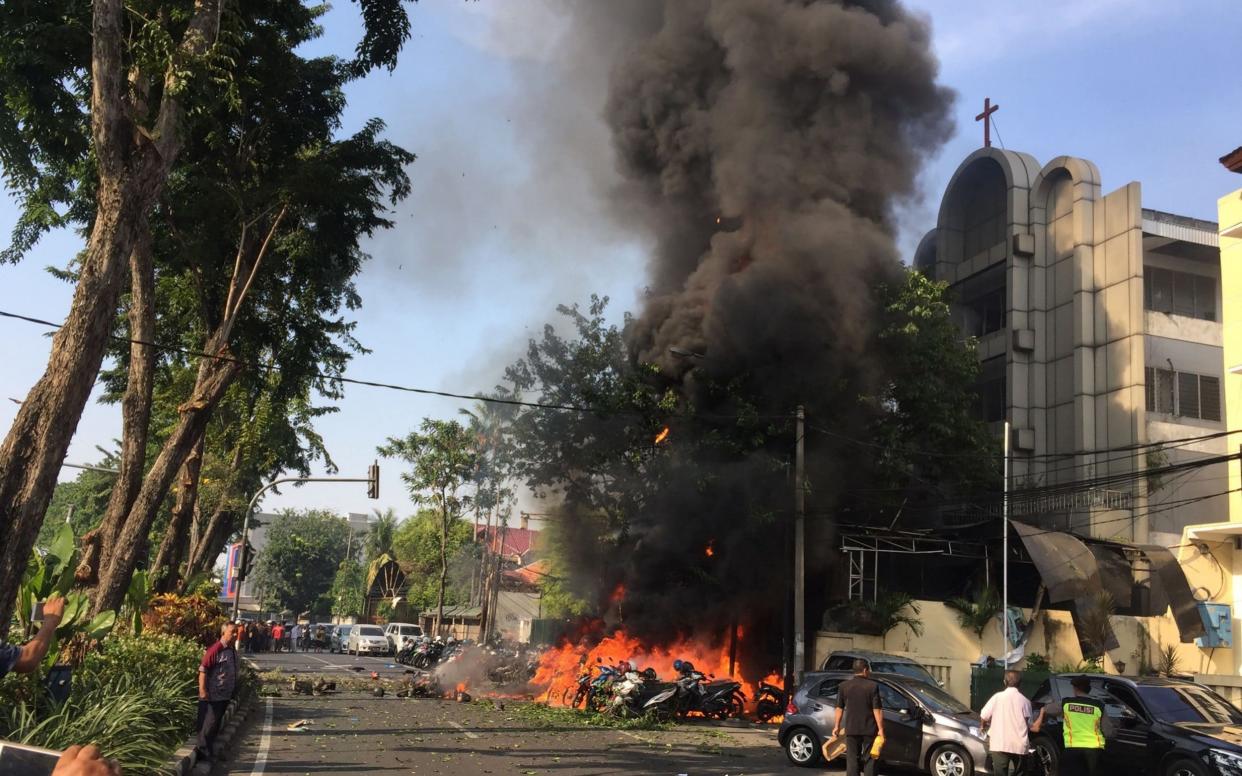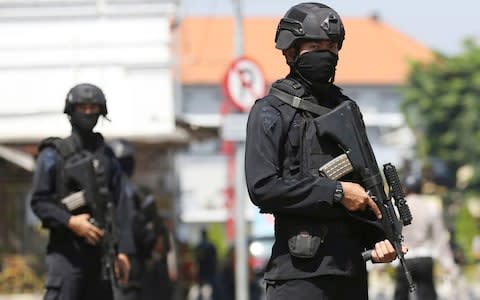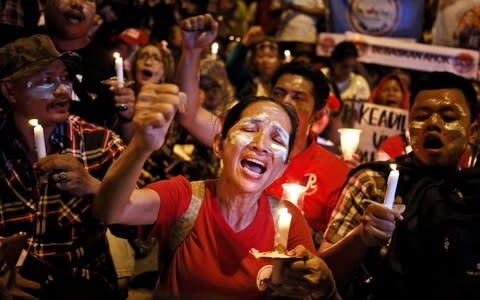Indonesian mosques preaching extremism to civil servants, warns intelligence agency

Dozens of Indonesian mosques are preaching extremism, including violence against non-Muslims, to government workers, the country’s intelligence agency has warned.
The alarming findings of the Indonesian State Intelligence Agency follow Indonesia’s worst terrorist attack in a decade when three churches and a police station were bombed in the city of Surabaya in May, killing 28 people. Islamic State of Iraq and the Levant (Isil) claimed responsibility for the bombings.
In a chilling development, child suicide bombers were among the attackers in the deadly assault, once again raising fears about the growing influence of hardline Islamism and the decline of religious tolerance in the world’s most populous Muslim nation.
According to AFP, the intelligence agency revealed it had probed about 1,000 mosques across the Southeast Asian country since July, and discovered that imams at some 41 places of worship in one neighbourhood in the capital, Jakarta, were preaching extremism to worshippers.

“The majority of people who go to these mosques are government workers so that’s why this is alarming,” Wawan Purwanto, the intelligence agency’s spokesman, told the newswire. “These are the people who are running the country.”
Intelligence officers found about 17 clerics expressed support of sympathy for Isil and encouraged their congregation to fight for the jihadist group in Syria and Marawi, the southern Philippine city that was destroyed in 2017 after it was besieged by foreign Isil fighters.
More than 600 Indonesians, including at least 166 women and children, travelled to Syria to join Isil, according to data released earlier this year by the Indonesian authorities.
Other preachers urged their followers to commit violence on behalf of the jihadist group, and spread hatred to vilify Indonesia’s minority religions, which include Christianity, Buddhism and Hinduism.
Details were not released about the agency’s findings at hundreds of other mosques outside of Jakarta.
Concerns have been rising in recent years about the growing influence of extremist groups in Indonesia, a sprawling archipelago that is home to 260 million people.

Last year, the Christian minority was left reeling in shock after the controversial jailing of the former governor of Jakarta, Basuki Tjahaja Purnama – known by his nickname Ahok – on blasphemy charges.
The conviction of a prominent member of the Christian community followed months of large-scale protests by the Islamic Defenders Front, a hardline group with a record of violence and intimidation, which had previously argued that a Christian should not govern a Muslim-majority city.
Ahok was accused of insulting Islam on the campaign trail but he insisted that his comments had been misinterpreted.
His case highlighted the challenges faced by the government and judiciary in tackling extremist groups which are capable of influencing large sections of the electorate, despite constitutional guarantees on freedom of religion.
President Joko Widodo faces a tough re-election battle in 2019 in a country which ranges widely from the more liberal holiday paradise of Bali to Aceh province, which is ruled by Sharia law and where citizens can be caned for having sex outside of marriage or for selling alcohol.

 Yahoo News
Yahoo News 
